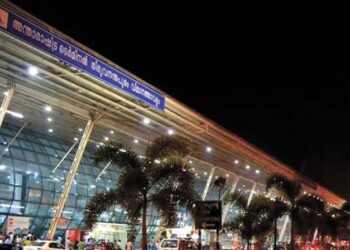Chandrayaan 3, the lunar mission that captured the enchantment of the moon, and Aditya L 1, the ambitious endeavour to touch the sun, stand as the crowning achievements of India’s space exploration efforts. These missions have not only captured the imagination of the nation but also inspired a new generation of students to dream of becoming Indian Space Research Organisation (ISRO) scientists who lead such prestigious endeavours, attracting global attention. These students are the promise of tomorrow, the ones who will carry forward India’s legacy in space exploration. To help them achieve their aspirations, let’s search for subjects to study and courses to pursue to work in various fields within ISRO.
Space Science and Engineering:
Students interested in spacecraft design, development, and operations should consider pursuing degrees in aerospace engineering, astrophysics, or space science. Specialised courses in spacecraft technology and engineering will be invaluable.
Computer Science and IT:
ISRO heavily relies on advanced computing and IT systems for data analysis, mission control, and satellite communication. Therefore, computer science and IT-related courses are in demand.
Remote Sensing and Earth Sciences:
Those intrigued by satellite imagery and its applications in areas like agriculture, disaster management, and urban planning should explore courses in remote sensing, geoinformatics, or earth sciences.
Satellite Communication and Electronics:
For roles in satellite communication and electronics, degrees in electronics, communication engineering, or related fields are essential. Specialisations in satellite communication systems will be advantageous.
Astrophysics and Astronomy:
To contribute to space research and exploration, aspiring astrophysicists and astronomers can consider academic pathways in these fields. This knowledge is crucial for missions like Aditya L1.
Mechanical and Electrical Engineering:
Spacecraft are complex machines that require mechanical and electrical engineers for design and maintenance. Pursuing degrees in these engineering disciplines can open doors to ISRO.
Materials Science:
Materials science is vital for developing lightweight and durable materials used in space technology. Courses in materials science and engineering are pertinent.
Mathematics and Data Analysis:
Strong analytical and mathematical skills are crucial for various ISRO roles, including mission planning, trajectory calculations, and data analysis.
Project Management:
ISRO relies on effective project management to ensure the success of missions. Students interested in this aspect can pursue courses in project management or related fields.












Comments